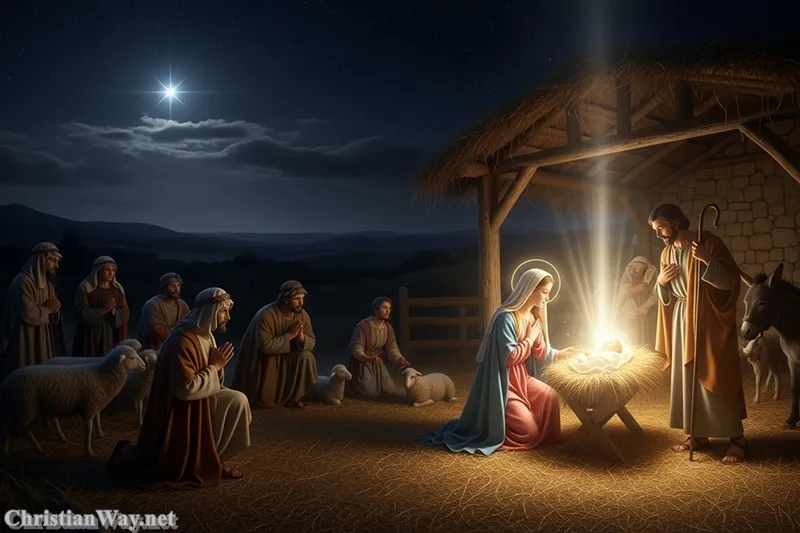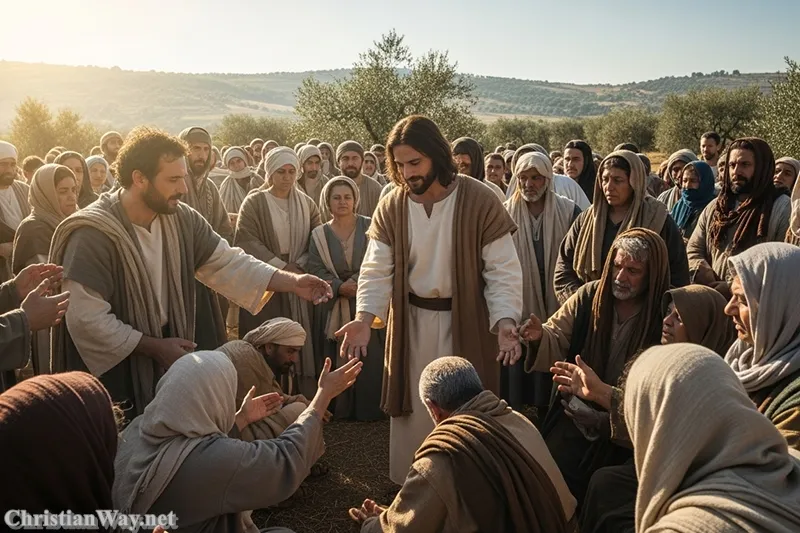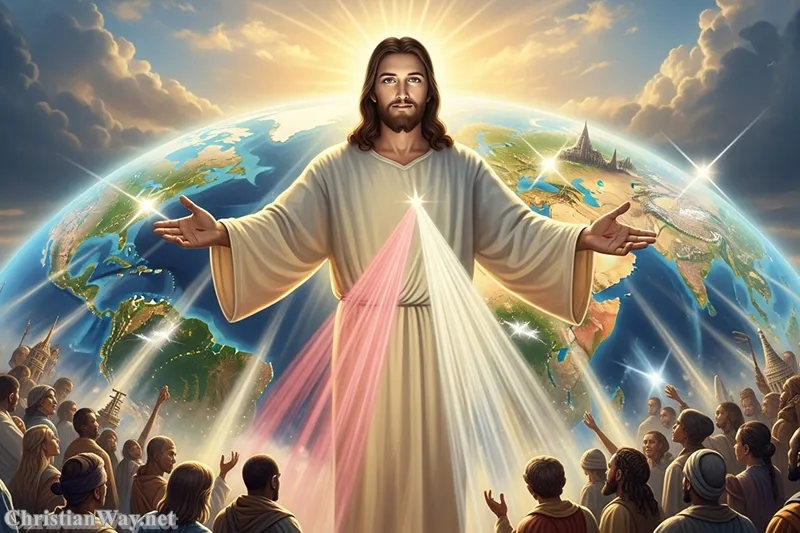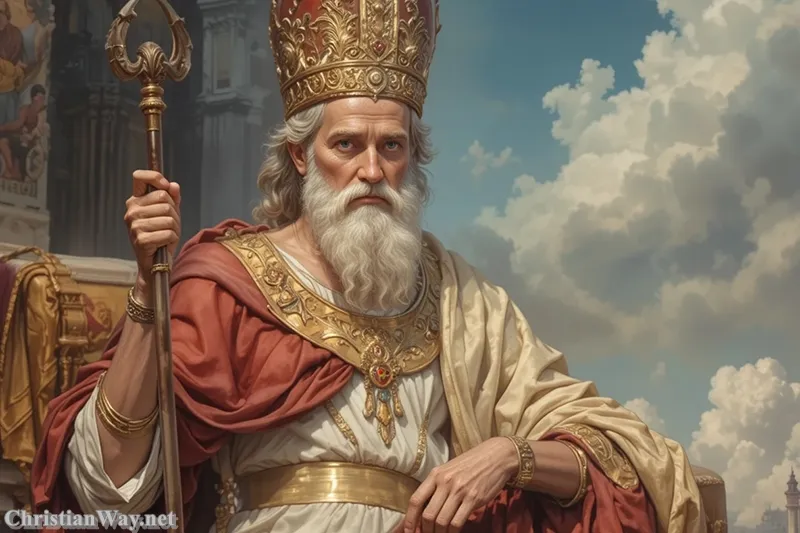Dear friends in Christ,
Every soul, at some point in its journey, comes face to face with the question of redemption. We may not always use that word, yet deep within us lies a cry for it — a longing to be made whole, to be forgiven, to begin again. In the quiet of our conscience, when we see the distance between who we are and who we are called to be, we sense the aching need for a love that can heal what we have broken. That is the story of redemption — not an abstract doctrine, but the heartbeat of God’s mercy pulsing through history.
From the first moment humanity fell away from God’s grace, the divine response was not vengeance but compassion. Redemption is the unfolding story of how God, through Jesus Christ, entered our wounded world, took upon Himself the burden of sin, and offered His very life to restore what was lost. It is the mystery of love stronger than death — the love that came not to condemn, but to save.
The Meaning of Redemption: God’s Response to Human Brokenness
Redemption means being “bought back,” rescued from bondage, and restored to freedom. In Scripture, this language often appears in the context of slavery or captivity. When the Israelites were freed from Egypt, they were “redeemed” by God’s mighty hand. Yet this physical liberation foreshadowed something deeper — a spiritual deliverance from the slavery of sin.

In the fullness of time, God sent His Son, not merely to liberate us from earthly oppressors, but from the darkness that reigns within the human heart. As St. Paul writes, “In Him we have redemption through His blood, the forgiveness of sins, according to the riches of His grace” (Ephesians 1:7).
Through the Cross, Christ did not simply cancel a debt; He transformed the meaning of suffering itself. He entered into the lowest depths of human pain — betrayal, loneliness, humiliation, and death — and filled them with divine love. In doing so, He redeemed not only our souls but our very humanity.
The Price of Love: The Cross as the Center of Redemption
To speak of redemption is to speak of the Cross. It is there that divine justice and mercy meet; it is there that love is revealed in its most radiant form. The Cross is not the symbol of defeat, but the throne of victory.
When Christ stretched out His arms upon the wood, He embraced all of human history — every sin, every wound, every tear. The nails that held Him were not stronger than the love that moved Him. Redemption was not achieved by force but by surrender; not through domination but through self-giving love.
In the words of Jesus Himself: “The Son of Man came not to be served, but to serve, and to give His life as a ransom for many” (Mark 10:45). The ransom He paid was not to appease an angry Father but to heal a broken creation. The Father and the Son were united in one will — to love the world back to life.
Every drop of blood that fell from the Cross speaks of a love that knows no limits. It is a love that says to the sinner, “You are worth dying for.” It is a love that whispers to the weary, “Come to Me, and I will give you rest.”
The Empty Tomb: Redemption Brought to Completion
If the Cross reveals the cost of redemption, the Resurrection reveals its triumph. On Easter morning, when Christ rose from the dead, He did not merely return to life — He inaugurated a new creation. Death, once thought invincible, was undone from within.
The Resurrection proclaims that the power of sin and death has been broken. What once enslaved humanity now lies defeated. In Christ’s victory, we find our own. As St. Peter declared, “You were ransomed from the futile ways inherited from your ancestors… with the precious blood of Christ, like that of a lamb without blemish or spot” (1 Peter 1:18–19).
Redemption, then, is not only about forgiveness but transformation. It is the restoration of our original dignity as children of God. The risen Christ opens before us the path of new life — a life of holiness, joy, and communion.
The Personal Dimension of Redemption: God’s Love for Each Soul
Though redemption is cosmic in scope, it is also deeply personal. Christ did not die for humanity in general but for each person in particular. He knows every name, every sorrow, every secret shame, and still He calls us beloved.
When we stand before the Cross, we are invited to see our own story reflected in His wounds. Redemption is not something we merely admire from afar; it is something we are called to receive and live. It begins when we allow the mercy of Christ to touch the places we have tried to hide — when we confess, repent, and let His grace make us new.
As St. Augustine wrote, “God loves each of us as if there were only one of us.” In that love lies the mystery of redemption — personal, intimate, and unending.
Living the Redeemed Life: A Call to Freedom and Grace
Redemption is not only a past event; it is an ongoing reality. To live as the redeemed is to walk in the freedom of God’s children — free from despair, free from guilt, free from the false gods of this world.
But freedom in Christ is not the absence of limits; it is the presence of love. The one who has been redeemed is called to mirror that same mercy to others. Just as we have been forgiven, so we must forgive; just as we have been restored, so we must become instruments of restoration.
Redemption changes how we see the world. Every act of compassion, every work of justice, every moment of reconciliation becomes a continuation of Christ’s redemptive mission. We are invited to participate in the healing of creation — not by our own strength, but through the grace that flows from the Cross.
The sacraments, especially the Eucharist and Reconciliation, are the living channels of that grace. In the Eucharist, we receive the very Body and Blood of the Redeemer — the same sacrifice offered once for all on Calvary, made present to nourish our souls. In confession, we encounter the same mercy that poured forth from His pierced side.
To live the redeemed life is to live in gratitude — to see every breath as a gift, every trial as an opportunity to love, and every person as someone for whom Christ died.
Redemption and the Renewal of Creation
The story of redemption extends beyond human souls; it embraces the entire cosmos. St. Paul writes that “creation itself will be set free from its bondage to decay and obtain the glorious liberty of the children of God” (Romans 8:21). The fall of humanity brought disorder to the world, but the redemption of humanity will bring its renewal.
Christ’s work is not limited to spiritual salvation; it is the beginning of a restored creation — a world where justice and peace kiss, where all things are reconciled in Him (Colossians 1:20). The redeemed heart becomes a seed of that new creation, bearing fruit in acts of love and hope.
Every time we forgive, every time we choose compassion over judgment, every time we bear witness to truth in a world of confusion, we participate in God’s ongoing act of redemption.
The Mystery of Redemption and Human Suffering
For many, the hardest question is this: if we are redeemed, why do we still suffer? The answer is not simple, yet it lies within the Cross itself. Redemption does not erase suffering, but transforms it. Through Christ, suffering becomes a place of meeting with God.
When we unite our pain to His, it becomes prayer; when we endure trials with faith, they become seeds of resurrection. The redeemed soul learns not to run from suffering, but to see within it the hidden work of grace.
St. Paul could therefore say, “I rejoice in my sufferings for your sake, and in my flesh I complete what is lacking in Christ’s afflictions for the sake of His body, the Church” (Colossians 1:24). There is nothing lacking in Christ’s redemption, yet through love, we are invited to share in it.
The Redeemer’s Call: “Be Reconciled to God”
Redemption is offered freely, but it must be received. The grace of Christ waits at the door of every heart. St. Paul pleads, “We implore you on behalf of Christ, be reconciled to God” (2 Corinthians 5:20).
To be reconciled means to return home — to stop running, to allow the Father to embrace us. Like the prodigal son, we discover that our sin cannot outdistance His mercy. The Redeemer does not ask for perfection before He loves; He loves us into perfection.
Each time we turn to Him in prayer, in repentance, or in the quiet longing for grace, we enter once more into the mystery of redemption — the mystery of a God who never stops seeking His children.
A Redeemed World Begins with a Redeemed Heart
The transformation of the world begins not in governments or institutions, but in hearts that have been touched by divine love. A redeemed heart becomes a living sign of hope — a light in the darkness, a reflection of Christ’s mercy.
When others encounter such a heart, they glimpse what redemption looks like in flesh and blood: humility instead of pride, compassion instead of indifference, peace instead of anxiety.
The world is redeemed one heart at a time, and every soul that yields to grace becomes part of God’s great renewal.
In the Light of Christ
Redemption is not a theory to be understood but a mystery to be lived. It is the story of God’s love written into our own. The Redeemer’s work continues every day — in every act of mercy, every tear forgiven, every soul awakened to grace.
Let us live, then, as the redeemed — not as those who have earned salvation, but as those who have received it freely. Let us carry the Cross not as a burden, but as a sign of love; let us proclaim the Resurrection not only with our lips, but with our lives.
And when we fall, let us rise again, trusting that the One who redeemed us will never let us go.
May the Redeemer of the world, Jesus Christ, fill your heart with peace, renew your spirit with His mercy, and guide you always toward the light of His eternal love.
— Fr. John Matthew, for Christian Way





